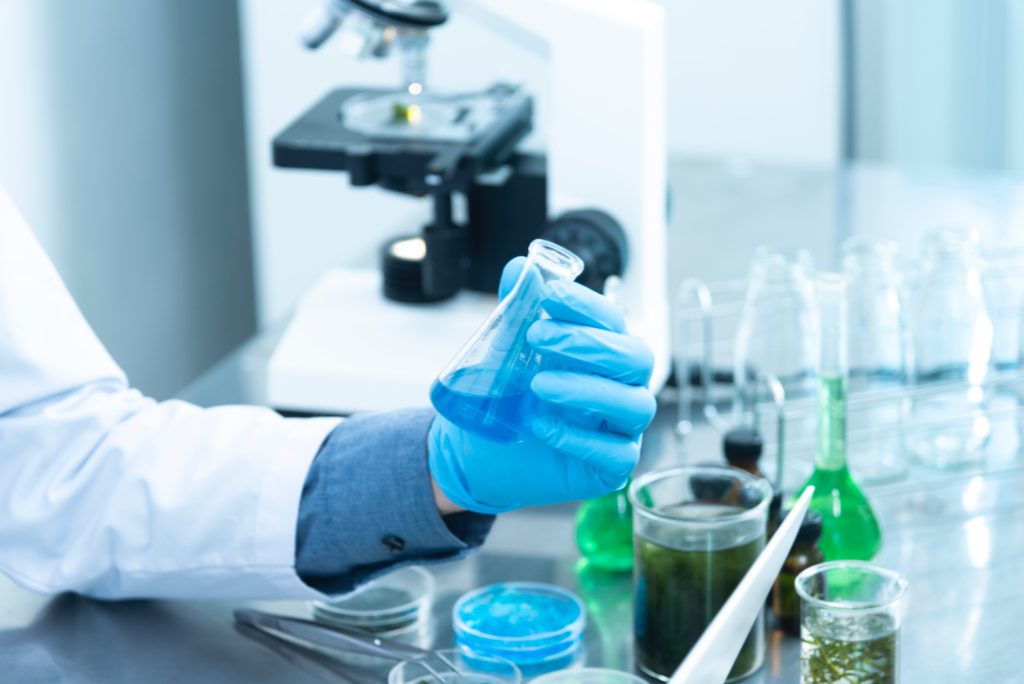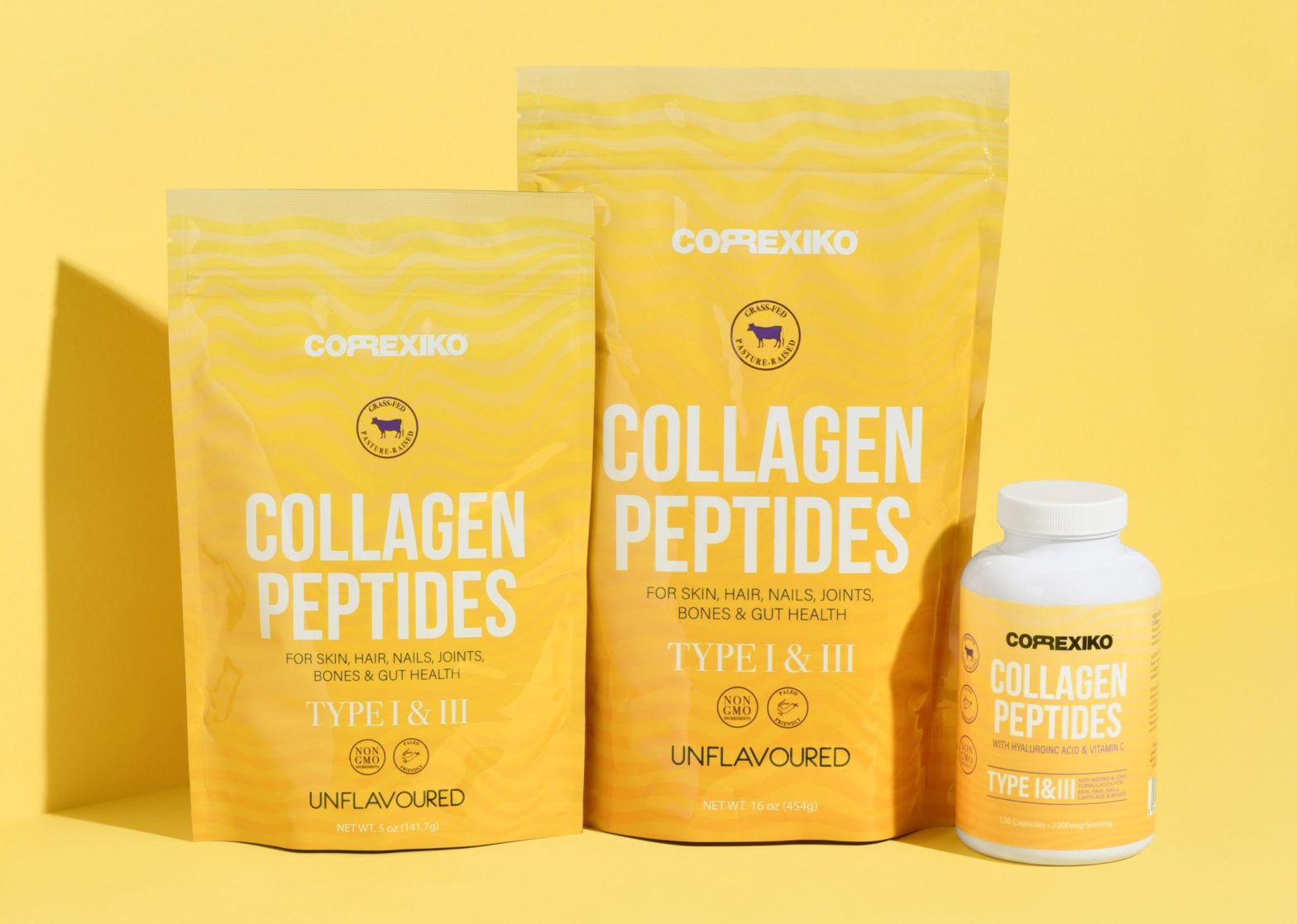Introduction:
When it comes to muscle building, protein is a crucial nutrient that plays a central role in muscle repair and growth. When we consume proteins through our food, they contribute to the growth of proteins within our muscles. These proteins are crucial for muscle contractions, which are necessary for activities like weightlifting in the gym.
So, by increasing the growth of our muscle contractile proteins, our muscles grow bigger and also stronger. We scientists can measure the process of muscle growth by assessing myofibrillar protein synthesis rates. This myofibrillar protein synthesis rate is expressed in percentage (%) per hour. So, a higher rate (% per hour) means more stimulation.
For a comprehensive understanding of muscle growth and building, you can refer to our detailed Muscle Building Guide.

Interestingly, our muscles consist of various other proteins that also serve different functions. Among these proteins, connective tissue proteins form essential complexes that provide structural support within our muscles and can also help in making our muscles stronger. Muscle connective tissue protein consist mainly out of collagen protein.
When looking at protein intake strategies, traditionally, a whey protein shake has been the go-to choice for athletes and fitness enthusiasts due to its high content of essential amino acids. Whey protein has indeed been shown to stimulate myofibrillar protein synthesis.
The question is, however, whether our connective tissue protein can also be stimulated via nutrition. We wanted to investigate the effect of collagen protein ingestion on stimulating muscle connective protein synthesis.

In this blog post, we will delve into the findings of our new scientific article that investigated the effects of collagen protein ingestion on muscle connective protein synthesis rates, in comparison to whey protein (1).
The Study:
In this study we asked 45 young, male and female recreational athletes, with an average age of 25, to participate. All participants performed a single session of resistance exercise, specifically barbell squats. Subsequently, the participants were assigned to one of three groups: whey protein ingestion, collagen protein ingestion, or a non-caloric placebo. Each group consumed either 30g of whey protein, 30g of collagen protein, or the placebo, respectively.

Key Findings:
- Total amino acids in the blood:
Both whey and collagen protein ingestion increased blood plasma amino acid concentrations. However, the rise in essential amino acid concentrations was greater in the whey protein group compared to the collagen protein group. - Non-essential amino acids Glycine and Proline:
Collagen protein ingestion led to a more significant increase in plasma glycine and proline concentrations compared to whey protein. This is not surprising as collagen protein contains much more of the amino acids glycine and proline. - Myofibrillar Protein Synthesis Rates:
Myofibrillar protein synthesis rates were measured and averaged at 0.041% per hour in the whey protein group, 0.036% per hour in the collagen protein group, and 0.032% per hour in the placebo group. Only the whey protein group showed significantly higher rates compared to the placebo group. - Muscle Connective Protein Synthesis Rates:
Muscle connective protein synthesis rates were measured and averaged at 0.072% per hour in the whey protein group, 0.068% per hour in the collagen protein group, and 0.058% per hour in the placebo group. However, there were no significant differences observed between the groups.
Conclusion:
Based on the findings of this study, it can be concluded that post-exercise ingestion of whey protein is effective in increasing myofibrillar protein synthesis rates, which are crucial for muscle building and repair. However, collagen protein ingestion does not lead to a further increase in muscle connective protein synthesis rates during early post-exercise recovery in both male and female recreational athletes.

To put into perspective:
It is important to note that muscle connective tissue provides structural support to the muscles, tendons, and ligaments, contributing to overall muscle function and strength. While collagen protein has gained popularity for its potential benefits in promoting joint health, its direct impact on muscle connective protein synthesis appears to be limited.
Incorporating Collagen Protein into Your Fitness Regimen:
Although collagen protein may not directly stimulate muscle connective protein synthesis rates, it still may offer several potential benefits for athletes and individuals engaged in regular exercise. For example. collagen protein supplementation can support joint health and enhance recovery from exercise-induced joint discomfort. Therefore, incorporating collagen protein alongside a well-rounded diet and suitable exercise program may offer comprehensive support for overall fitness and well-being.
More on this later… Stay tuned!
Reference:
- Aussieker T, Hilkens L, Holwerda AM, Fuchs CJ, Houben LHP, Senden JM, et al. Collagen Protein Ingestion during Recovery from Exercise Does Not Increase Muscle Connective Protein Synthesis Rates. Med Sci Sports Exerc. 2023.
🧬 The scientific guide to building muscle mass by Dr. Cas Fuchs (Ph.D.) is currently under development. Sign up to be the first to hear when it launches:
